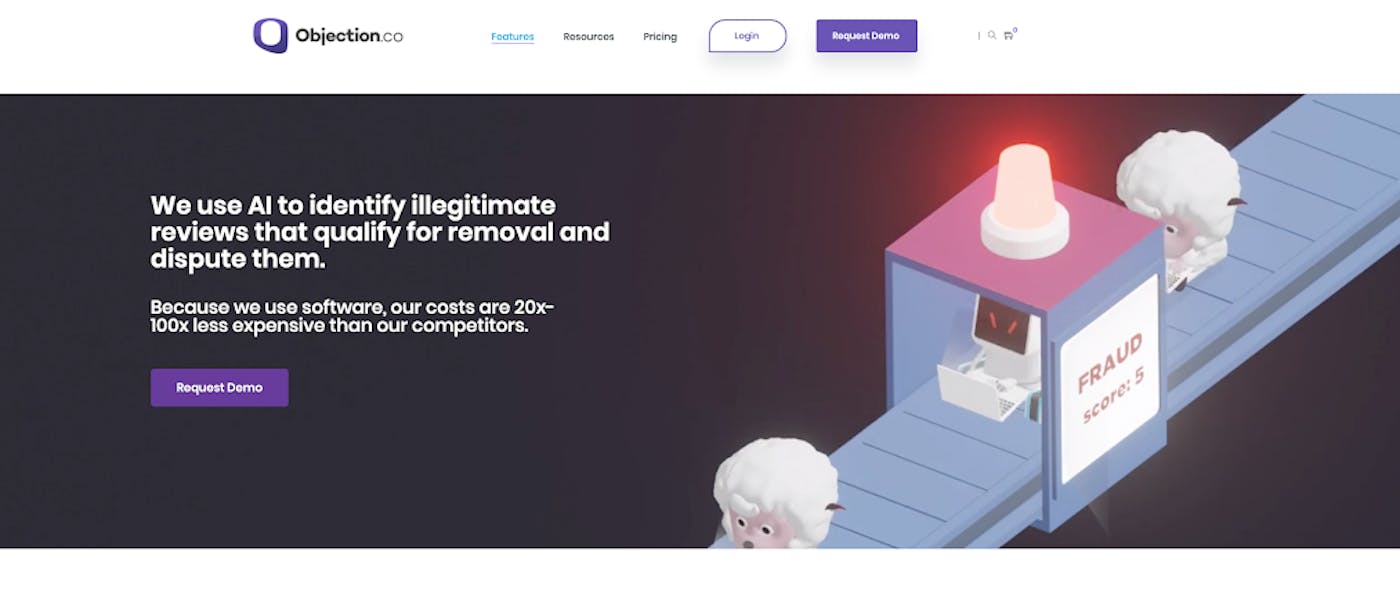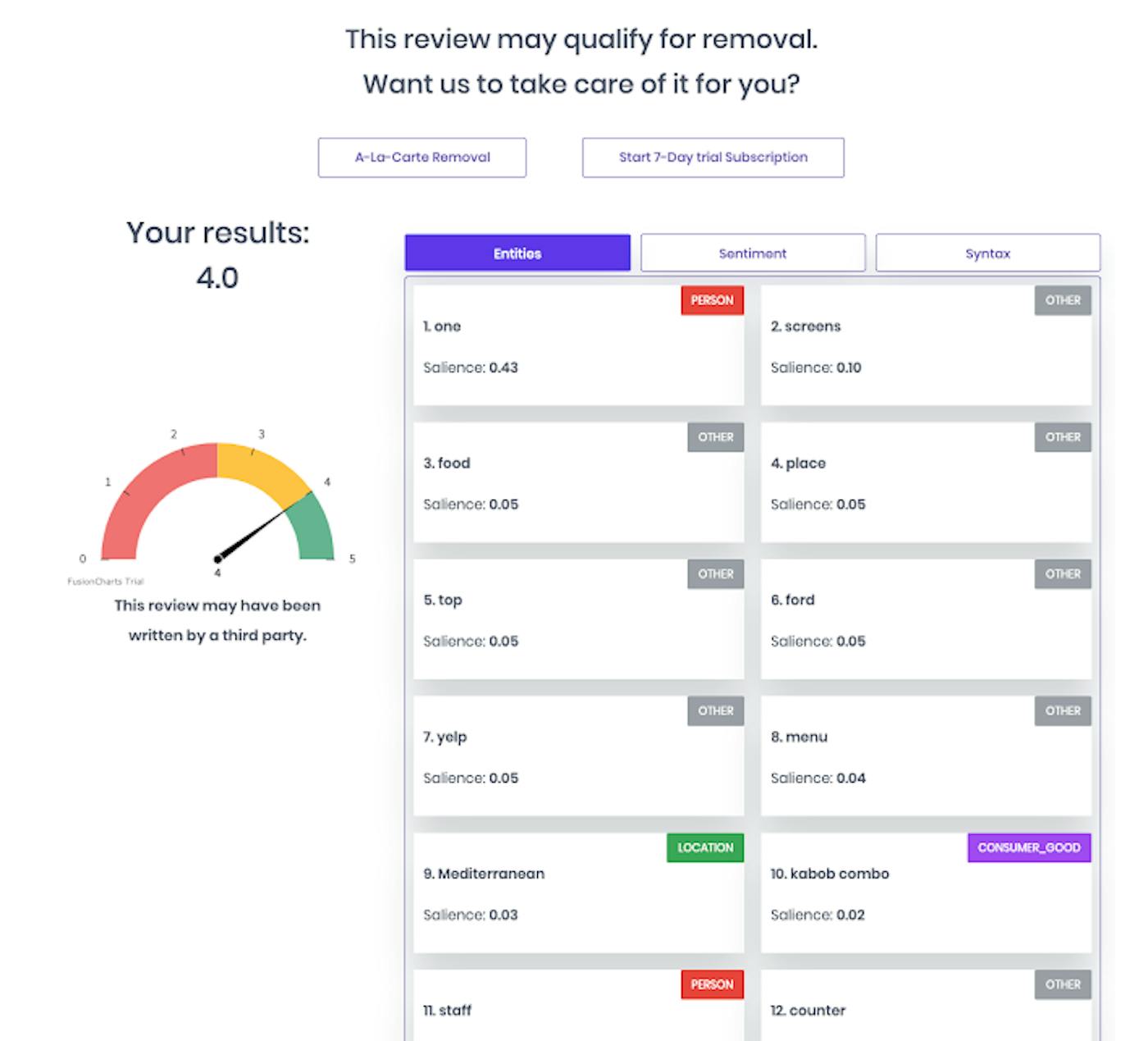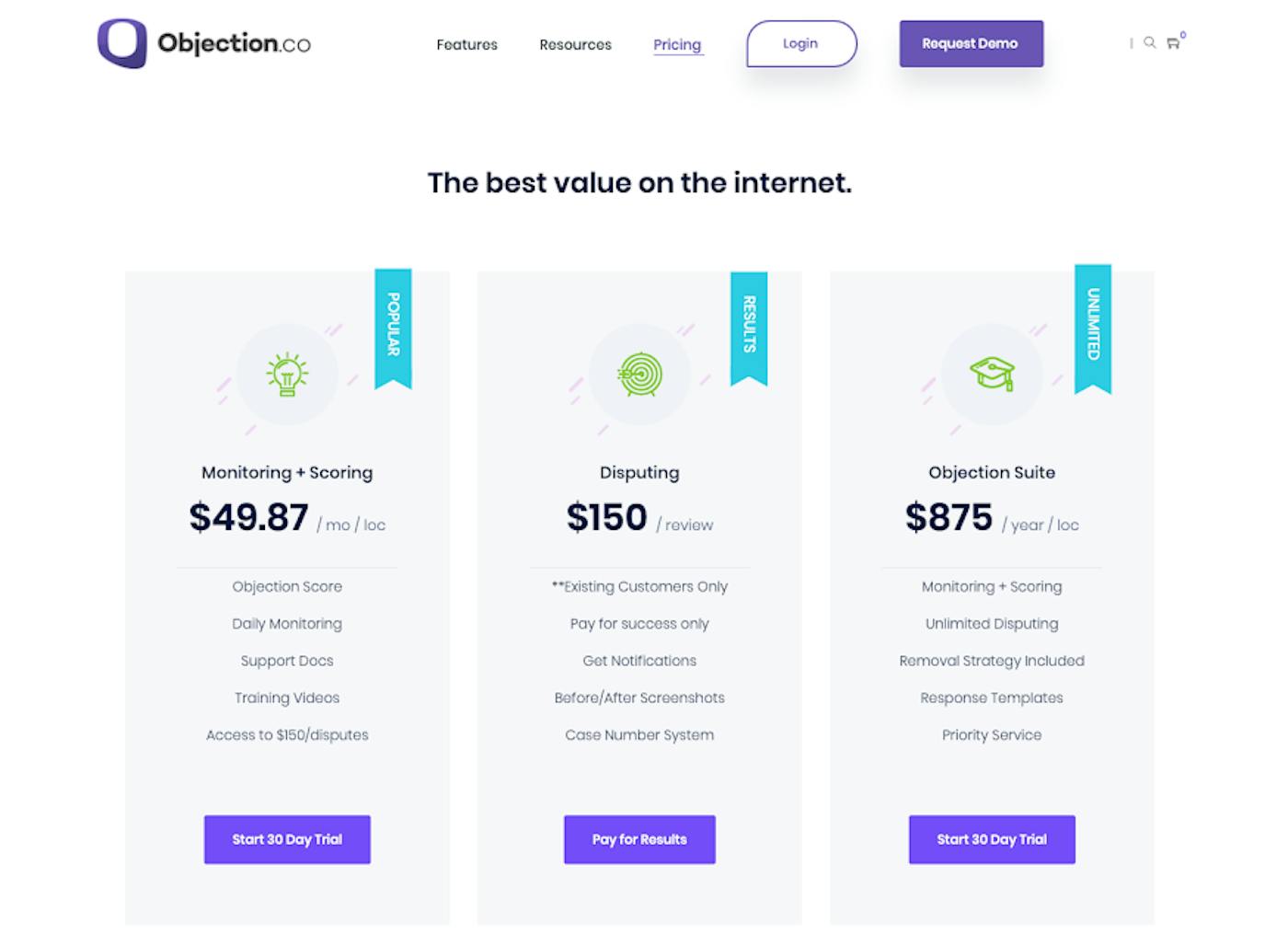The Business Idea That Got Me Out of $30K in Nursing School
Debt
Hello! What's your background, and what are you working on?
Hello, my fellow indie hackers! My name is Curtis Boyd, and I'm the founder of Objection Co. I've got a background in nursing.
Objection Co is a SaaS product which uses AI to identify fraudulent reviews that are bad for business.

What motivated you to get started with Objection Co?
My entrepreneurial journey started when I was in nursing school. I was in my last semester, $30,000 in debt, and was rotating through the ER where I was precepting.
One of the cosmetic surgeons came into the ER to do a consult. He was in a terrible mood because a patient left him an awful review that was really hurting his private practice. I told him that I might be able to remove it for him. He jokingly said he'd pay off my student loans if I did. I told him how much in student loans I had, and he said he'd probably lost more than that already in the week that the review had been up, since it lost him seven or eight new consultations.
The next day I called his office and asked him if he was serious about his offer he made in the ER, and he said he was. I spent the next 72 hours in research mode, flagging and disputing the bad review like crazy. I couldn't get it off. The review administrators were adamant, and I was really discouraged.
I ended up flying to San Francisco during the weekend and was cruising local coffee shops next to the headquarters of this review website to see if I could meet someone who might be able to help me. I ended up meeting a senior-level executive who formerly worked in the review removal department who gave me the lowdown. He provided detailed instructions on what to do and say in order to get the review removed. With this advice, I flew back home and got to work.
Within 48 hours I had the review removed. Within another 48 hours I had a check for $30,000. That was the day I realized I could solve a problem for thousands of business owners and really make an impact on their life. That particular doctor was on the board of directors for the entire physician network, so within a week I had 500+ clients, a CPA, and my own growing business. That was six years ago.
Our B2B ORM SaaS is narrowly focused on using AI/ML to identify and dispute illegitimate reviews online on 18+ of the most widely used review websites. It is used today by marketers and business owners alike. The most common industries are medical, home service, legal, and hospitality. We have had our doors open for about eight months and are close to a quarter of a million dollars in annual run rate.
About three years ago, I realized that a computer could probably do my job. Rather than become another statistic, I decided to go back to school and learn how to code and program a computer to do my job. While I was learning to code, I realized that I could offer my service to an unlimited number of customers simultaneously versus the manual and time-consuming process I used before to accomplish the same task.
I pitched the idea to multiple customers and consultants who I currently worked with, who loved the concept. I knew even if things never "blew up" I would at least be able to use it for my own purposes in the future and spend less time reading through bad reviews and focusing on the illegitimate ones that could be disputed.
Previously I had been working as a consultant in online PR, hired on a retainer basis to read, identify, and dispute illegitimate reviews online. I had been doing this for about six-ish years and focused primarily on Yelp and Google reviews, which led me to understand the mechanics of most administrations of reviewer content.
I didn't really consider anything else, considering this has been my main line of work for a while now. My financial situation has always been rocky; some months were amazing and some months were completely dry. Running a SaaS-based business has definitely helped stabilize the financial sheets as we have a dashboard that hosts our customer reviews, which requires an ongoing fee.
What went into building the initial product?
The first iteration of Objection Co was built by an offshore dev team based out of India that I found on Upwork. Ironically, despite the good reviews, they were pretty terrible. The project was delayed over six months, and they asked for thousands of dollars on top of their original quote. Originally I thought it was going to cost $15,000. I ended up scrapping the whole thing and found another team.
My second team was based out of Ukraine and the quality of code and communication skyrocketed. What took over a year with the team in India took my Ukrainian team about three months.
The features were based on a decision-making tree within online reputation management and the best practices on how to handle negative reviews. I didn't want to compete with large companies that broadly covered all aspects of online reputation — I just wanted to create a dashboard uniquely for managing negative reviews.
I have bootstrapped this entire project from start to finish from my savings account. I worked as a marketing director at a local sign company until the company made enough for me to quit my job and focus full time on growing our subscribers and authority in the field.
Jason Brown and his research on review fraud was extremely helpful, while he focuses on Google reviews the characteristics of review fraud are similar on all review websites alike. Josh Prilloud was my business consultant who helped me put together a business model and understand my product fit in the larger market.

What's your tech stack?
On the front end, we have a WordPress SaaS theme. On the back end, we're using a Laravel Vue stack to host customer dashboards. We have five different API's that we use to feed our customer dashboards.
- Review Aggregator API (to pull in existing reviews)
- Review Update API (to monitor reviews daily)
- Review Scoring API (to score reviews on likely they qualify for removal)
- Review Fraud API (to score reviewer profiles on fraud metrics)
- Profile Score API (to compile star ratings and revenue loss calculator)
Our review Fraud API uses 4+ different AI frameworks:
- Image Analysis
- Clustering
- BERT/NLP Analysis
- NLTK/NLP Analysis
Our stack has absolutely been changing, as we evolved from a negative review to a review-star agnostic fraud detection system. In the beginning, our API was more along the lines of a fancy review filter containing a huge bag of words to reach the reason why reviews could be removed. Now it's moving more into the direction of AI and machine learning, creating new fraud metrics for various review websites.
How have you attracted users and grown Objection Co?
We never really had a "launch." We just opened for business and expected tons of people to flock to us. Of course, that never happened. We were able to bring some of our consulting customers over and generate enough revenue to qualify for getting some capital from ClearBanc.
With those funds, we got serious about our sales pipeline and outbound sales efforts. I put together a social listening tool that listens for new bad reviews for every business out there. Then we use our own software to see if the review qualifies for removal. If it does, the business gets a cold call and a postcard from us. We are able to pre-qualify our own leads from a list of about 40,000 different businesses that get a negative review each day. Now we have a team of three full-time appointment setters cold calling about 2,500 businesses a week.
We went from $2K in our first month, to $10k in our second month. We sell annual subscriptions more frequently, so the jump was pretty substantial. We went from 40 users to more than 300 users in less than four months. That's when we decided to change the front end in a major way.
We realized that our front end gave off a "false promise" solution, rather than a data-driven solution to identifying and disputing illegitimate reviews. Rather than trying to convince people, we realized that our value was in the results. We started using the hard data to show our customers how much our service could do for them.
Business has been slower, but what we have now is a better customer base, one that understands our service much better and is aligned with us in the long run.
What's your business model, and how have you grown your revenue?
We charge our users in 3 different ways:
- Annual Subscription
- Monthly Subscription
- A-La-Carte Results
In this way, we're able to work with the smallest businesses and the largest. We started with Stripe and have been very happy with them.

Currently, we're on track to making $20K/mo in revenue. Churn has always been high for us; once customers get what they want, they move on. We have been working on our product so we can retain customers for longer periods of time.
Our new business model is really focusing on strategic partnerships with larger channel partners. While we don't have a problem selling to small businesses, we know there's a huge opportunity to add our technology to existing enterprise ecosystems, too.
What are your goals for the future?
Right now, we're adding more and more fraud metrics to our API libraries so we can get a much better picture of intent within reviews and the creation of profiles on various review websites.
I would say there is one huge roadblock ahead. Our company by our very nature is designed to cannibalize itself. Hopefully a tech giant will purchase us once things get serious, but if they instead copy us by using the same techniques then we will be completely cut out of the market.
If you had to start over, what would you do differently?
Some of the poorest decisions I've made are in marketing spend, specifically being too trusting with marketing vendors. You need to find a tactic that works from a slow start and build on it. Don't let people promise you results; make them prove it.
Do A/B/C testing (or the multi-armed bandit tactic if it applies) to optimize your content, landing pages, and copy.
In my opinion, inbound leads are the best way to go if you can learn to get in front of the people who are searching for you.
Have you found anything particularly helpful or advantageous?
Product-led growth has been super helpful.
Malcolm Gladwell's books, particularly Tipping Point, have been very eye-opening to the little things within a product or service that help it to really stand out.
Procrastination will kill your business and will drown you in your own lack of productivity. Get things done now, at the moment. Become task-oriented and make things happen.
What's your advice for indie hackers who are just starting out?
Clear is kind.
When explaining what you do, try to make things overly simple. Stop focusing on your product and sell the results, the dream.
Where can we go to learn more?
If anyone out there is struggling with a reputation-management SaaS or wants to ask questions about review fraud, please don't hesitate!
